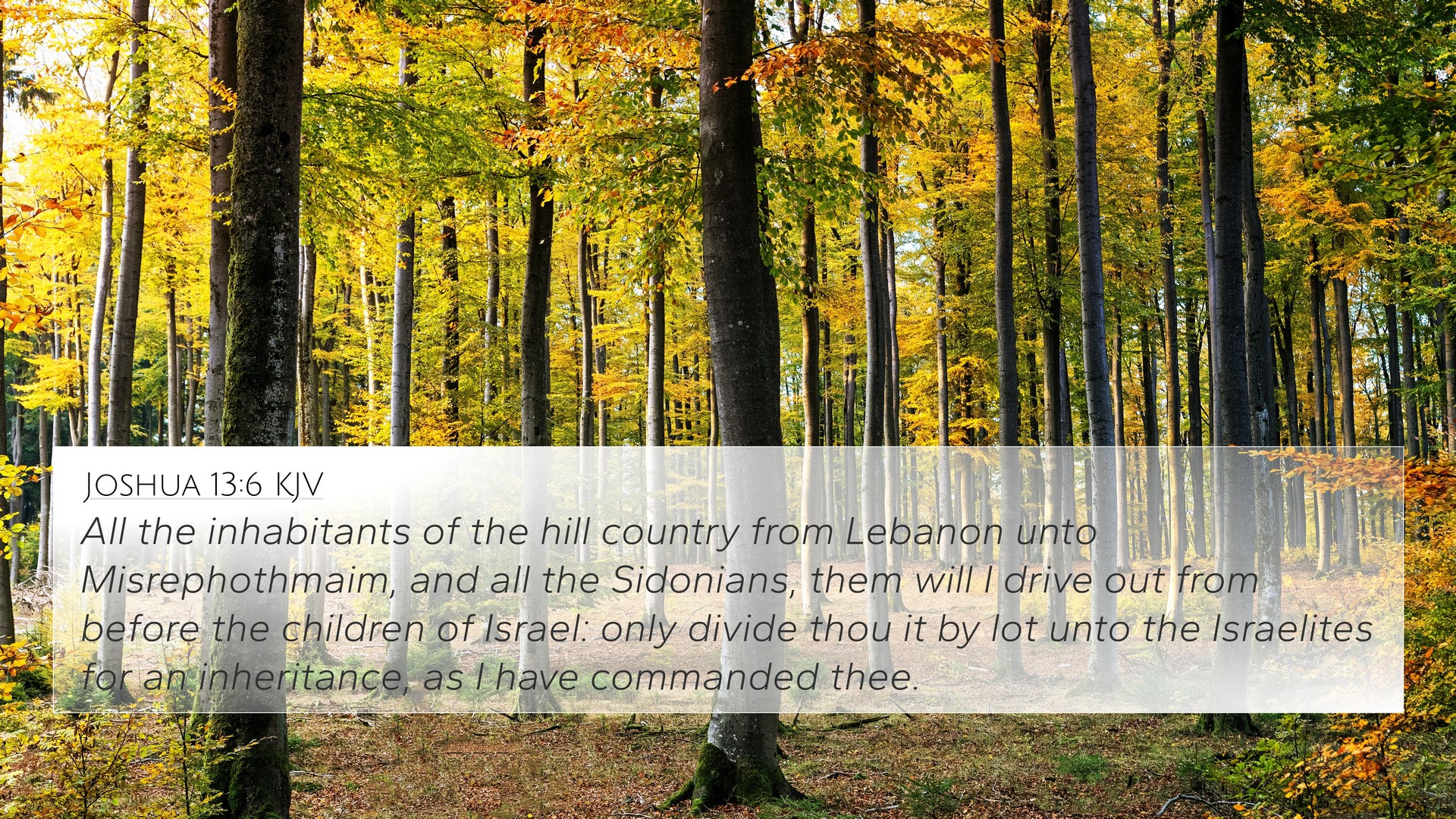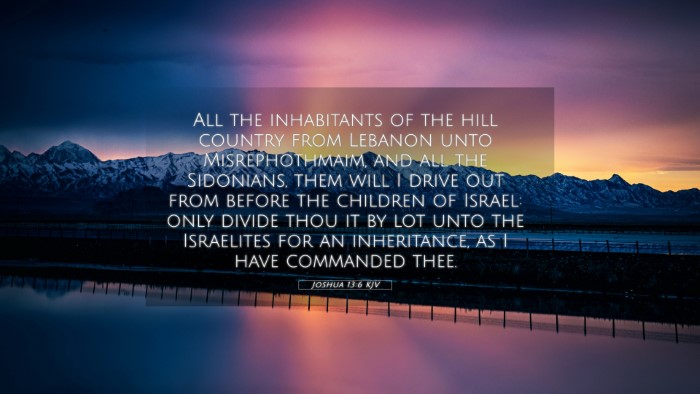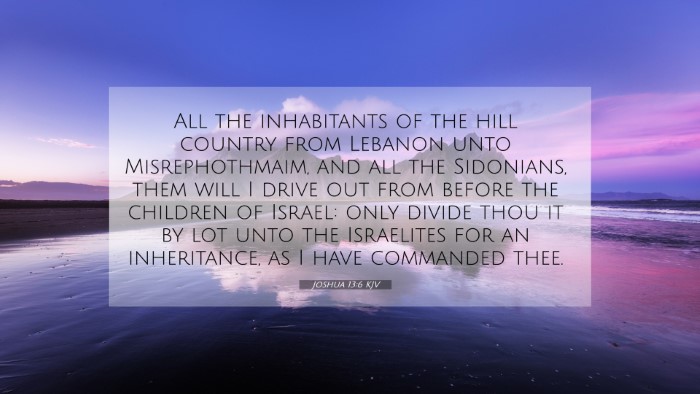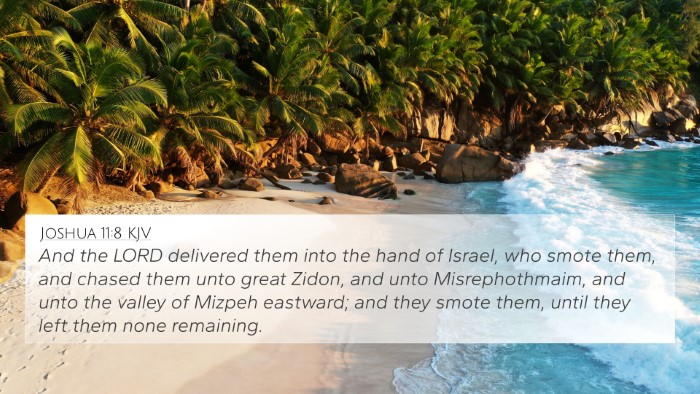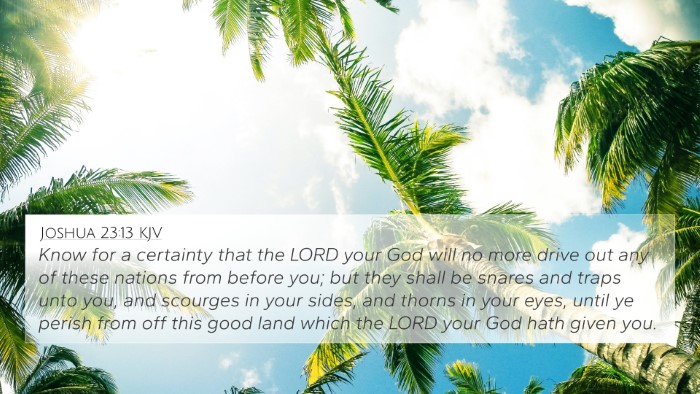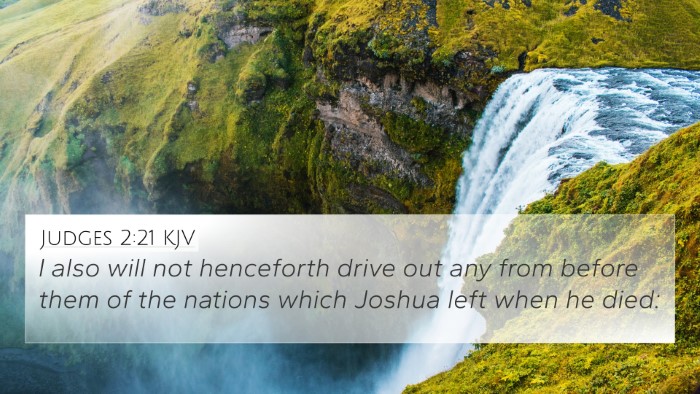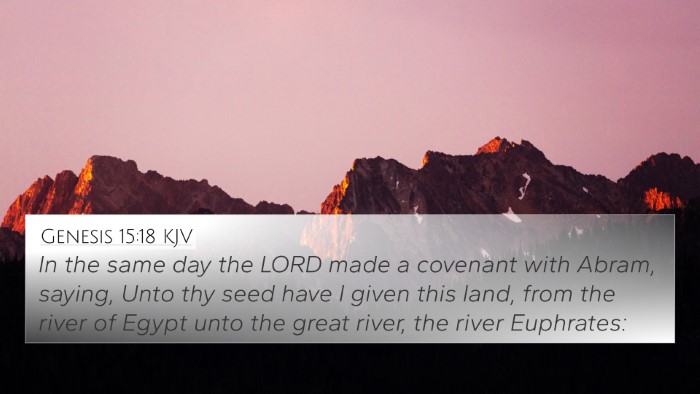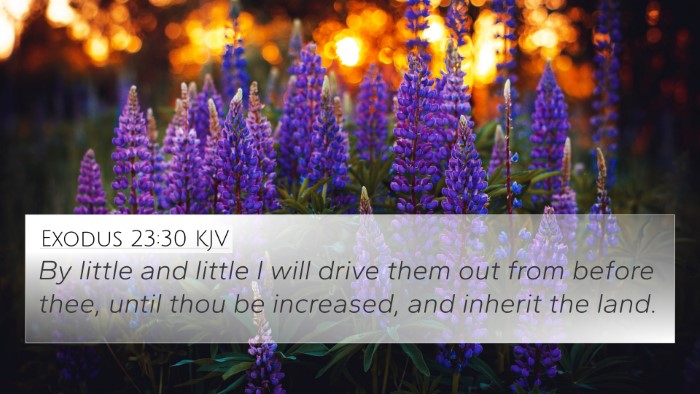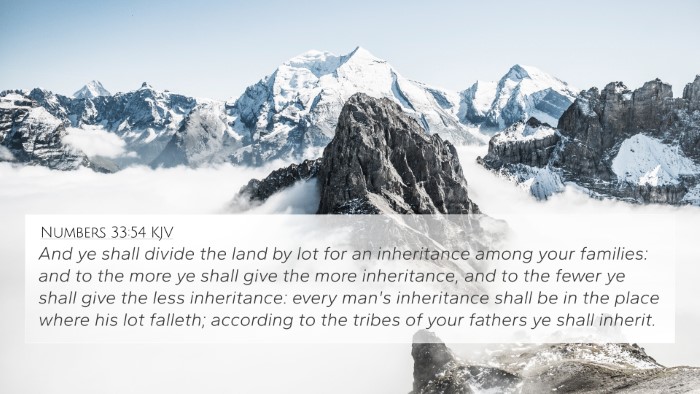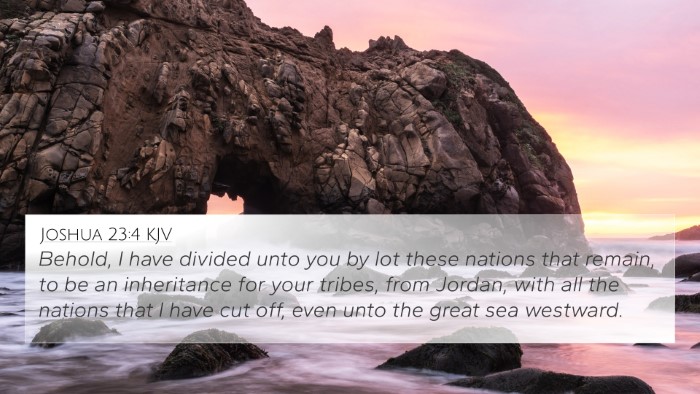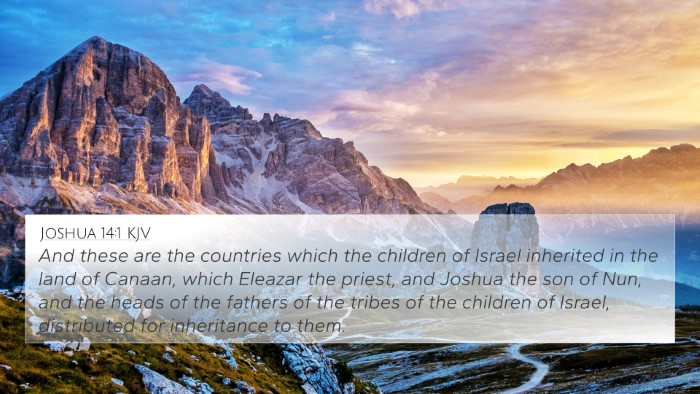Understanding Joshua 13:6
Joshua 13:6 states: "All the inhabitants of the hill country, and all Geshur and all Maacah, all the kingdom of Og which is in Bashan, which was called the land of giants. Moreover, the rest of the congregation, the children of Israel, will inherit the lands that I have assigned to them." This verse serves as a vital point in the distribution of land among the tribes of Israel and carries a significant theological weight.
Contextual Overview
In the larger narrative of the Book of Joshua, this verse is part of God's command to Joshua regarding the inheritance of the Promised Land. After successfully conquering much of Canaan, God instructs Joshua to begin dividing the lands among the tribes. The reference to "the kingdom of Og" further emphasizes the completion of God's promise to give His people the land.
Commentary Insights
Insights from various public domain commentaries illuminate the significance of this passage:
-
Matthew Henry:
Henry notes that this verse illustrates God's faithfulness in fulfilling His promises. The mention of "the kingdom of Og" highlights the conquests that Joshua and the Israelites achieved, underscoring God's might in delivering His people from their enemies.
-
Albert Barnes:
Barnes emphasizes that the phrase "the land of giants" serves a dual purpose; it reflects both the formidable enemies the Israelites encountered and the miraculous victory that God granted them. This can be viewed as a metaphor for overcoming great challenges with divine aid.
-
Adam Clarke:
Clarke provides insights into the historical context, explaining that Geshur and Maacah were territories that traditionally resisted Israelite control. Their mention acknowledges the reality of ongoing territorial disputes and highlights the importance of faithfulness to God's commands amidst challenges.
Bible Verse Cross-References
This verse connects significantly with several other Biblical texts, allowing for thematic investigations and comparative Bible verse analysis:
- Deuteronomy 3:11: Reference to Og, the king of Bashan, establishes the backdrop for Israel's victories.
- Numbers 21:33-35: Further account of the conquest of Og and the defeat of giants.
- Joshua 12:4-5: Details the conquests of kings, including Og, and shows the continuity of God's promises.
- Deuteronomy 3:1-3: God commanded the Israelites to not fear their enemies, reinforcing themes of divine support through battle.
- Joshua 14:12: Highlights Caleb's plea for inheritance in the land that was promised by the Lord, tying together themes of faith and receipt of God's promises.
- Isaiah 26:12: A reflection on God being the source of peace and strength for His people, relating back to their victories.
- 1 Chronicles 5:11-16: Talks about the tribes’ settlements, echoing the land divisions featured in Joshua.
Inter-Biblical Dialogue
This verse serves as a key example of inter-Biblical dialogue, where the themes and narratives presented in Joshua connect with both Old and New Testament teachings. The victory over giants symbolizes spiritual warfare that parallels themes found in the New Testament concerning wrestling against spiritual forces.
Practical Applications
Understanding Joshua 13:6 can aid believers in various ways:
- It illustrates the importance of faith in overcoming life’s challenges.
- It encourages the faithful to take possession of what God has promised.
- It serves as a reminder of God's faithfulness throughout history, affirming modern believers' trust in divine guidance.
Comparative Analysis
Through comparative Bible verse analysis, we witness how Joshua 13:6 relates profoundly to themes of promise, faith, and God's enduring presence. By employing tools for Bible cross-referencing, believers can draw parallels between different texts, enriching their understanding of God's overarching narrative throughout Scripture.
